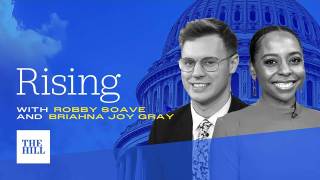Half of workers feel pressured to work late. Here’s why they shouldn’t

In spite of modern-day corporate messaging about getting behind employee work-life balance and mental health advocacy, more than half of employees still feel pressured into working late.
Last month’s Workforce Index by Slack, the workplace communications app, shows that two workers in five take on additional hours outside of the set eight-hour day, either by starting early or finishing late. And of those who do this regularly, an astonishing 54% do so because they feel pressured into it by various factors.
It’s not great news for harried workers, but the bad news for firms is that these employees are 20% less productive than the ones you can set your watch by being gone at 5pm. They also experience work-related stress that is more than twice that of their colleagues, and report 1.7 times lower job satisfaction––and they are twice as likely to report burnout.
With numbers like these (the Slack report queried more than 10,000 people globally), we can probably bid farewell to the link between hyperactivity and productivity. Going above and beyond with your time shouldn’t be a badge of honor, but a red flag that prompts your manager to touch base.
We’ve known for a while that burnout is a top risk for an always-on, always-connected workforce, but last year it peaked.
So what are 40 percent of us doing instead of logging off to be with family or invest time in hobbies? Usually, it’s playing catch up for time lost during the day in meetings and emails. “Not having enough time in the day” is a more common complaint the higher up a person is in their organization.
The solution? Aim for the Goldilocks Zone. This will vary from person to person, but a closer look at Slack’s data has thrown up an emerging formula to set workers up for daily productivity, without incurring task debt at the end of the day.
No matter their level of seniority, desk workers say the ideal amount of focus time is four hours a day. Two hours of meetings is the cut-off that makes most workers feel the need to shout stop, and everyone agrees that the afternoon slump is real and could be better used as break time.
In a Goldilocks scenario, managers would aim to respect these realities. Productivity isn’t linear.
And the thing about aiming for the Goldilocks set-up is that if your current role is no longer a productivity fit, it might be time to try something else that could prove to be “just right.”
Seeking a workplace that champions work-life harmony? The Hill Jobs has dozens of open roles with forward-thinking firms.
Communications Manager, Delta Regional Authority, Washington (remote)
The Delta Regional authority promotes and encourages the economic development of the lower Mississippi River and Alabama Black Belt regions. It is looking for a Communications Manager to oversee internal and external communication strategies. This position shapes public perception and informs communities about DRA’s impact, and you’ll be in charge of engaging targeted audiences.
Ideally you’ll bring a Bachelor’s degree, three years of communications experience (preferred within the DRA region) or a Master’s degree with two years’ experience. Core skills for this role include project management, writing, adaptability, teamwork, leadership and multicultural communication experience. The role is remote, but you should be based in or near one of the DRA’s 252 counties and parishes in the eight-state region. Find out more now.
Deputy Director, Finance, International Rescue Committee, New York
The International Rescue Committee (IRC) responds to global crises and helps affected populations in more than 40 countries, restoring health, safety, education, economic stability, and empowerment to those affected by conflict and disaster. The role of Deputy Director, Finance is now open. You will oversee financial infrastructure for the New York and New Jersey offices – financial oversight, budgeting, compliance, strategic planning, partnership development, and management are core skills. At a minimum you would have a Bachelor’s degree, eight years of professional experience (four in the not-for-profit arena), and leadership skills within a multicultural setting. The role demands regular presence in the office, combining office and remote work. You can read more details and apply for this role directly.
Partnership Tax Manager, EY Private, EY, Boston
EY Private is a growing division in EY focused on privately held high-growth companies. A Partnership Tax Manager is required to tackle intricate tax planning and compliance, liaise with a global team, and lead cross-border collaboration. Your qualifications should include a Bachelor’s degree, CPA or Bar membership, five or more years’ in tax or financial planning, and expertise in estate planning and flow-through. Strong communication and analytical skills, and an adaptable attitude. EY’s flexible vacation policy lets you set your vacation time based on your circumstances. You’ll also be granted designated EY paid holidays, winter/summer breaks, personal and family care, and other leaves of absence. Apply today.
regular post copyright









